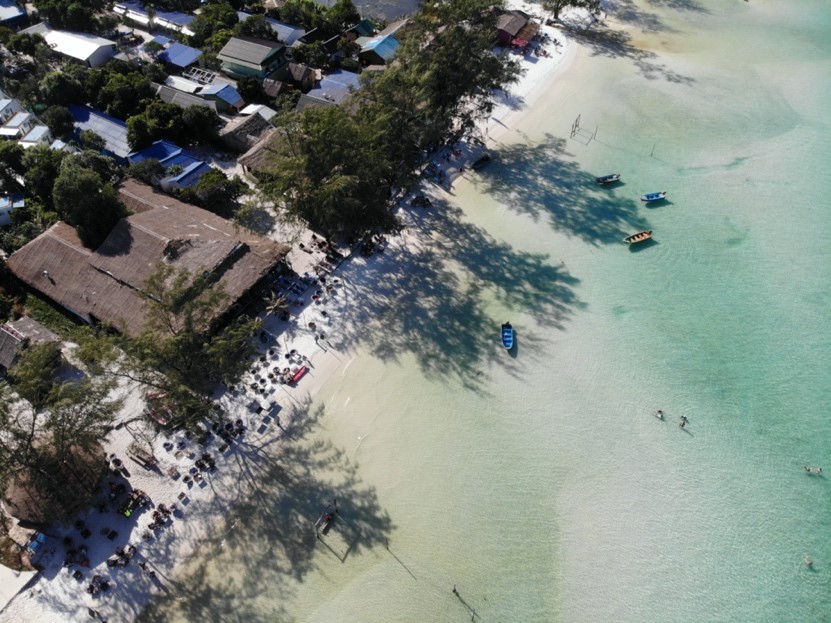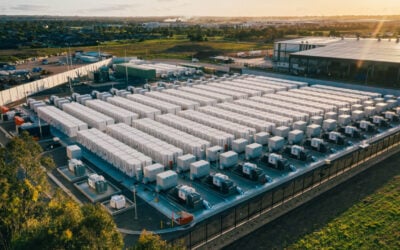
Singapore-headquartered microgrid company Canopy Power has partnered with Total Solar Distributed Generation (DG) to build a hybrid project for a remote resort island in Cambodia that includes 2MWh of battery storage.
Designed at dramatically lowering the reliance on noisy, polluting and expensive diesel fuel used for visitor accommodation facilities on the island of Koh Rong Sanloem in Sihanoukville, Cambodia, the microgrid is expected to be able to run on more than 50% renewable energy.
The project will include 1.25MWp of solar PV, the 2MWh battery energy storage system (BESS), smart controls and diesel genset. Scheduled for completion in April of next year, power will be delivered to the island’s local electricity retailer.
The Koh Rong Sanloem project will be financed, owned and operated by Total Solar DG. The company is a subsidiary of French oil & gas major Total, which also owns battery and battery storage system maker Saft.
Try Premium for just $1
- Full premium access for the first month at only $1
- Converts to an annual rate after 30 days unless cancelled
- Cancel anytime during the trial period
Premium Benefits
- Expert industry analysis and interviews
- Digital access to PV Tech Power journal
- Exclusive event discounts
Or get the full Premium subscription right away
Or continue reading this article for free
Total Solar DG said it has been active in Asia since 2018 providing solar-based energy solutions for the commercial and industrial (C&I) sector and has a portfolio of 600MW in the region made up of completed and in-development projects.
Total Solar DG’s CEO Gavin Adda said that the Koh Rong Sanloem project, which in effect converts “an entire island from diesel to solar-battery power” is a “milestone” for the company’s regional portfolio.
“Integrating storage with solar is a way for remote locations to leverage renewables effectively. For us, it’s also a great growth opportunity as there are tens of thousands of islands in Southeast Asia,” Adda said.
“As environmental awareness in the region increases, we are committed to delivering green energy solutions that also make financial sense,” he said, adding that the project cuts energy costs for business on the islands while highlighting a commitment to environmental sustainability.
Canopy Power meanwhile will be the Koh Rong Sanloem project’s engineering, procurement and construction (EPC) partner, designing, procuring and building the system before handing it over to Total Solar DG.
Electricity will be delivered across the tiny island via a new medium voltage electric distribution system across two of Koh Rong Sanloem’s main bays. At the moment, the more than 60 hotels, resorts and guest houses on the island each have their own diesel generator setup.
In addition to being environmentally damaging, this system can be expensive and unreliable as well as presenting tricky supply logistics. Total Solar DG claimed the project could save as much as 600,000 litres of diesel fuel from being burned across the island each year once the system is up and running.
Canopy Power founder Sujay Malve and director of business development Daniel Rye spoke with Energy-Storage.news around this time last year, as the company worked on similar projects in Indonesia for tourist resorts. Canopy has also developed its own microgrid controls system, called ‘Hornbill’.
Malve and Rye said then that while initially challenging from logistics and operational perspectives, the lessons learned from developing microgrids for luxury holiday facilities in Southeast Asia could be rolled out across the region and successfully replicated for other types of businesses.
“Electrification rate in Cambodia is relatively low and renewable energy microgrids would help to electrify the islands and remote parts of the country. We believe this microgrid at Koh Rong Sanloem will build local capabilities necessary for future deployments in Cambodia,” Sujay Malve said of this latest “high impact project”.





